Are you looking to request publication permissions but unsure how to start? Crafting a polite and concise letter is essential to ensure your request is taken seriously. In this article, we'll guide you through the key elements of a successful letter template for publication permission requests. Join us as we delve into the details that will help you make a strong impression!
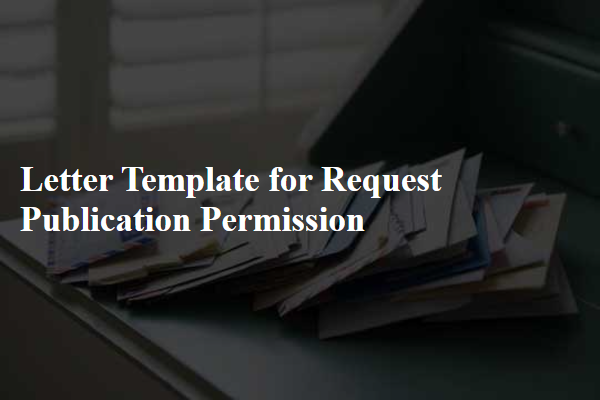
Clear identification of the original work and its author.
Publication permissions are essential for authors seeking to disseminate their original works, such as academic papers or creative writings. Clear identification of the original work involves including the title, publication date, and any specific journal or book where it was first published. Additionally, the author's name, along with their affiliated institution if applicable, should be clearly stated. Providing these details not only establishes ownership but also fosters respect for intellectual property. Authors must also consider any copyright notices or licensing agreements that may apply to their works to ensure compliance during the request process.
Specific description of the intended use.
Requesting publication permission involves detailing the specific use of the material in question. For instance, a researcher may seek to include an excerpt from a scholarly article within a dissertation submitted to a university, intending to disseminate findings through a digital repository. This repository, such as Open Access Theses and Dissertations (OATD), allows worldwide access to academic work, promoting knowledge sharing among students and scholars. The excerpt should be attributed properly to the original authors and the journal, ensuring all intellectual property rights are respected. Additionally, the researcher may wish to highlight how this inclusion supports their argument, providing context and enhancing the academic discourse surrounding the subject matter.
Details regarding distribution and accessibility.
Requesting publication permission involves outlining specific details concerning distribution and accessibility of the intended work. Notably, distribution refers to how the material will be disseminated, whether through print media, online platforms, or academic journals. Accessibility should encompass considerations for diverse audiences, including individuals with disabilities, which may involve compliance with standards like the Web Content Accessibility Guidelines (WCAG) for digital formats. Furthermore, it is essential to mention geographical reach, identifying if the publication will be localized to specific regions such as North America or available globally. This clarity ensures the copyright holder comprehends the intended use, reinforcing the legal permissions required for distribution and potential modifications to optimize accessibility.
Contact information for follow-up.
When seeking publication permission, it is crucial to include thorough contact information for follow-up correspondence. Clearly state your full name (including middle name if appropriate) along with a valid email address (preferably a professional domain for credibility). Include a direct phone number, providing both mobile and landline options to ensure easy reach. Additionally, specify your affiliation or organization name if applicable. If you represent a publication or institution, indicate that affiliation to establish context. Lastly, consider including your mailing address, as some organizations may prefer formal correspondence via postal service. Providing this comprehensive contact information fosters efficient communication for any required follow-up or additional clarification regarding your publication request.
Acknowledgment and citation of the original work.
When requesting publication permission, it's critical to include essential aspects such as the original work's title, author's name, and publication details. The request may highlight the original publication date, typically indicating the journal or book in which the work appeared, as well as the specific page range if applicable. Including the intended publication details of the new work, such as format (e.g., journal article, book chapter) and expected publication date, adds clarity. Additionally, reaffirming the intent to provide proper acknowledgment and accurate citation can strengthen the request. The citation format should follow specific guidelines, like APA or MLA, ensuring consistent attribution to the original author.
Letter Template For Request Publication Permission Samples
Letter template of request for permission to publish in a conference proceedings.
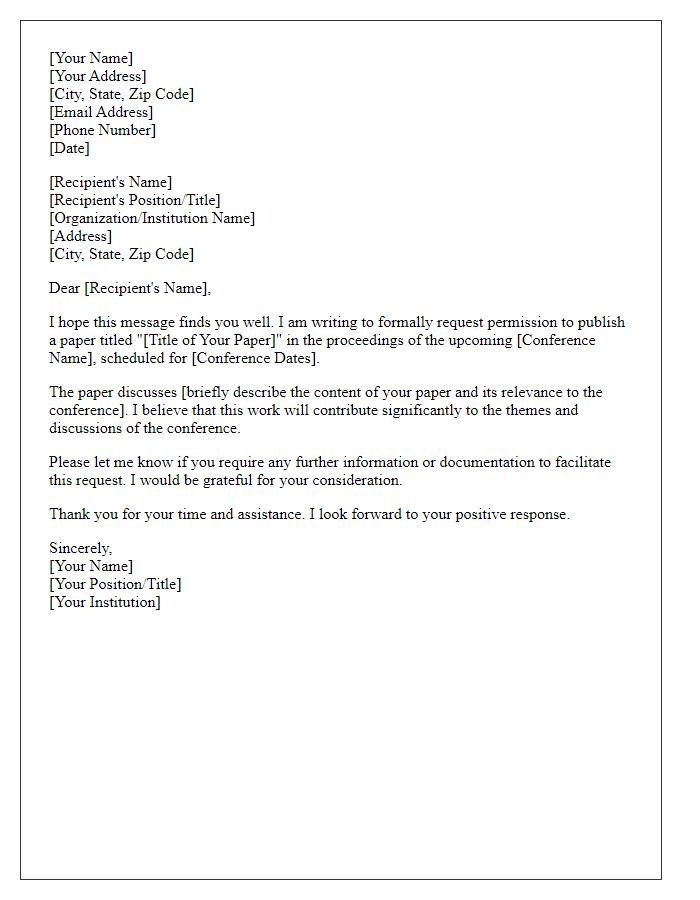
Letter template of request for rights to publish an article in a magazine.
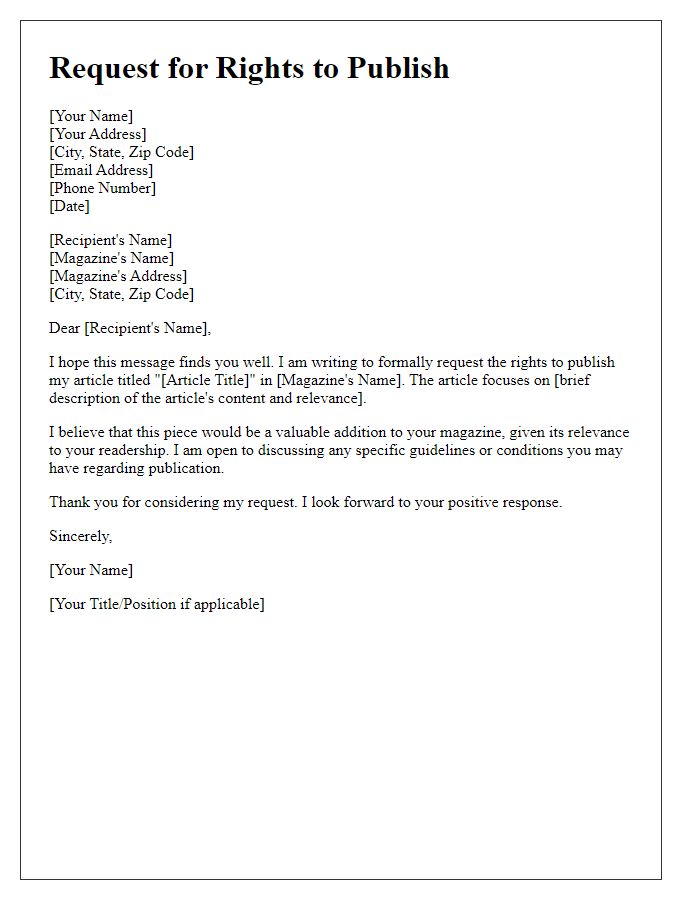
Letter template of request for reproducing copyrighted material in publication.
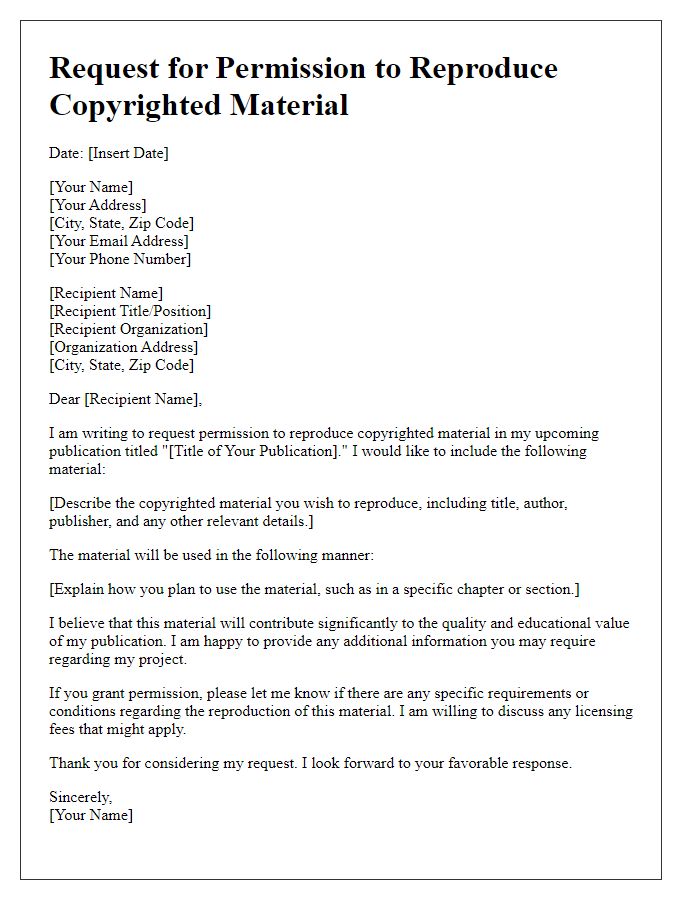
Letter template of consent request for photographic publication in a newsletter.
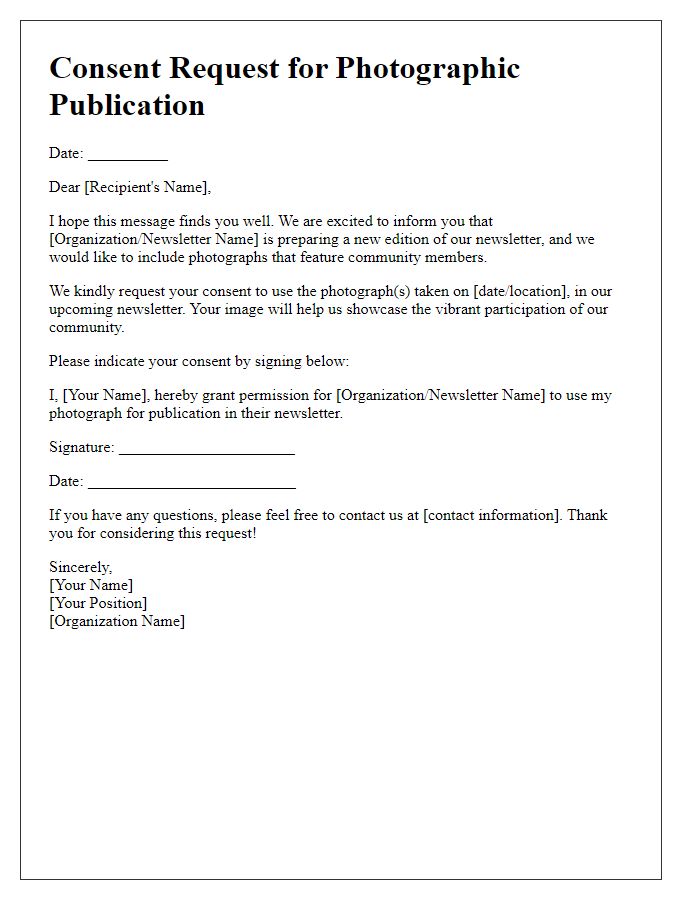
Letter template of permission request for including a figure in an academic paper.
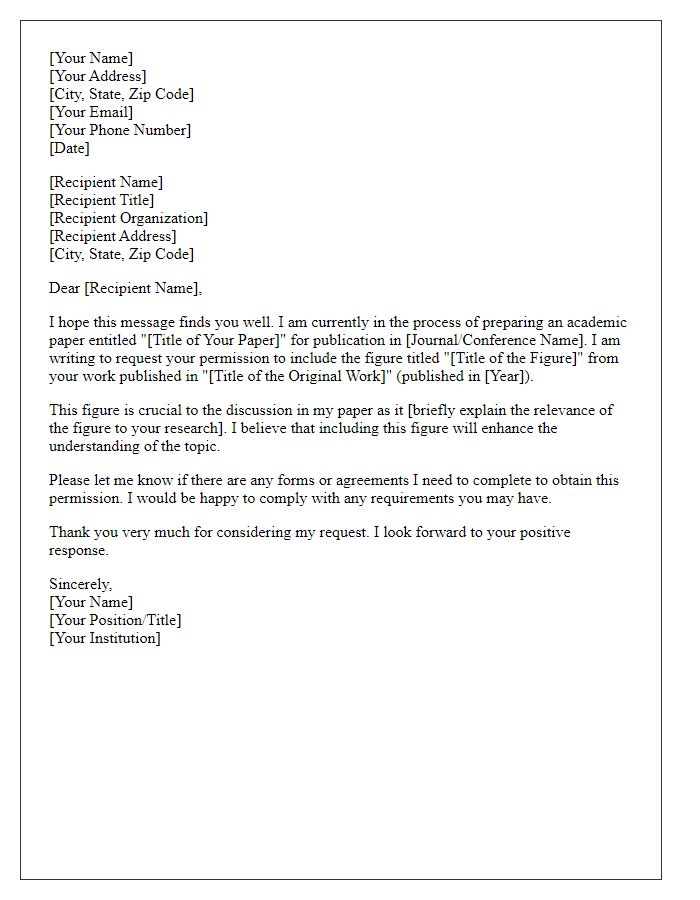

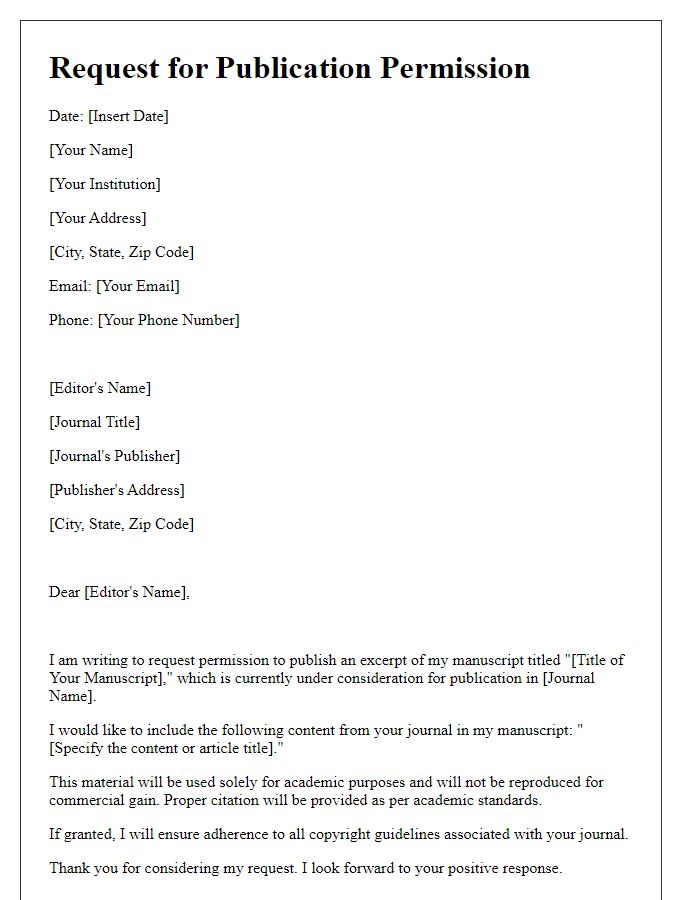
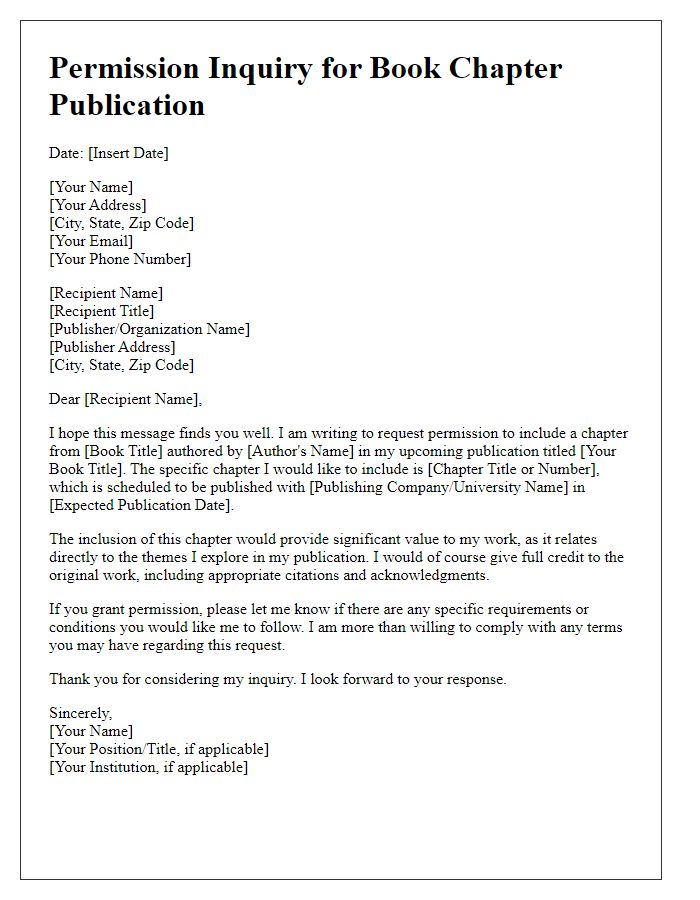
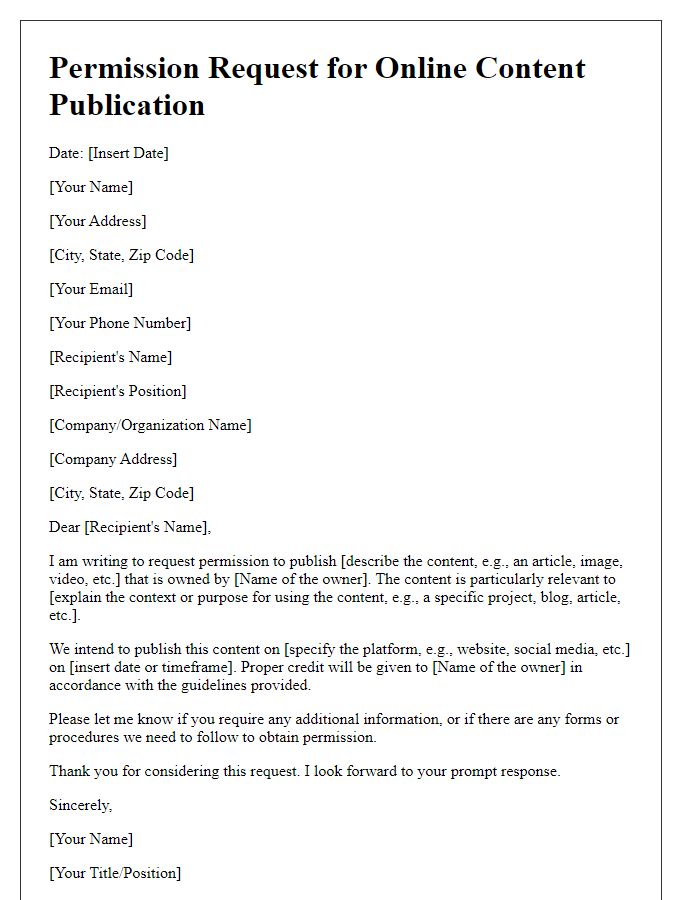
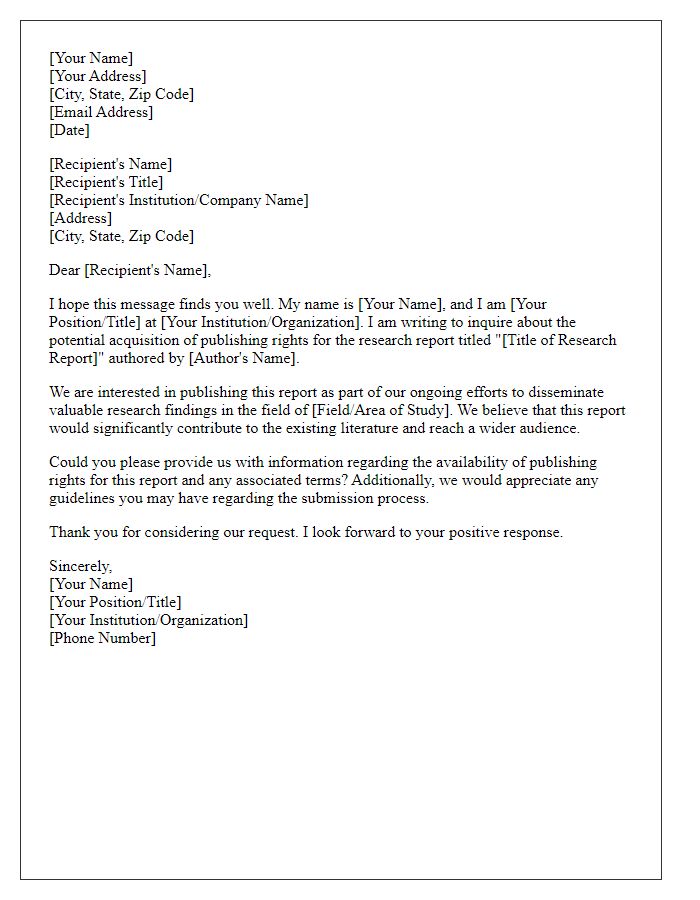
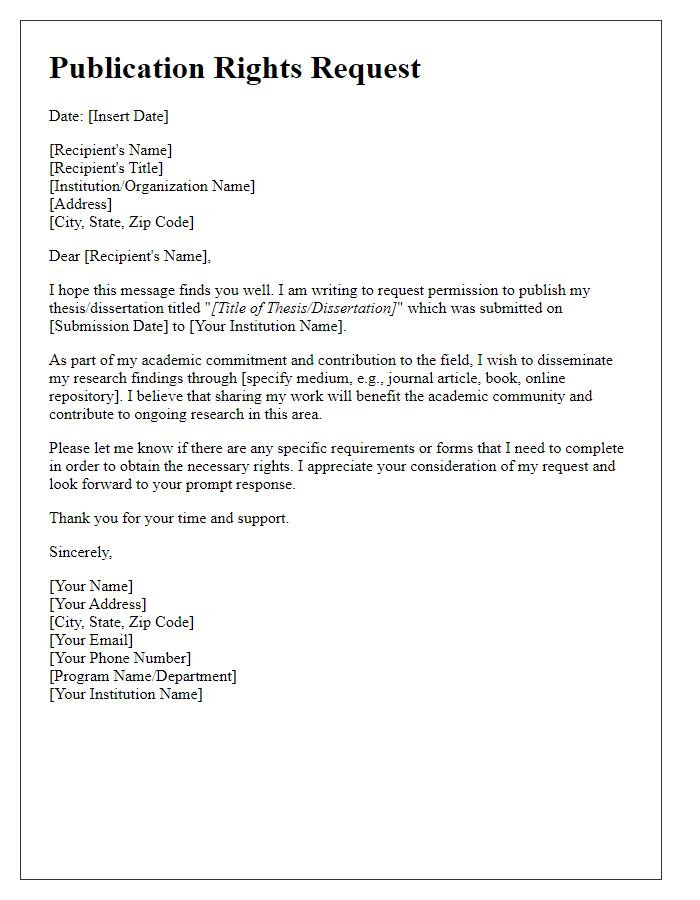


Comments